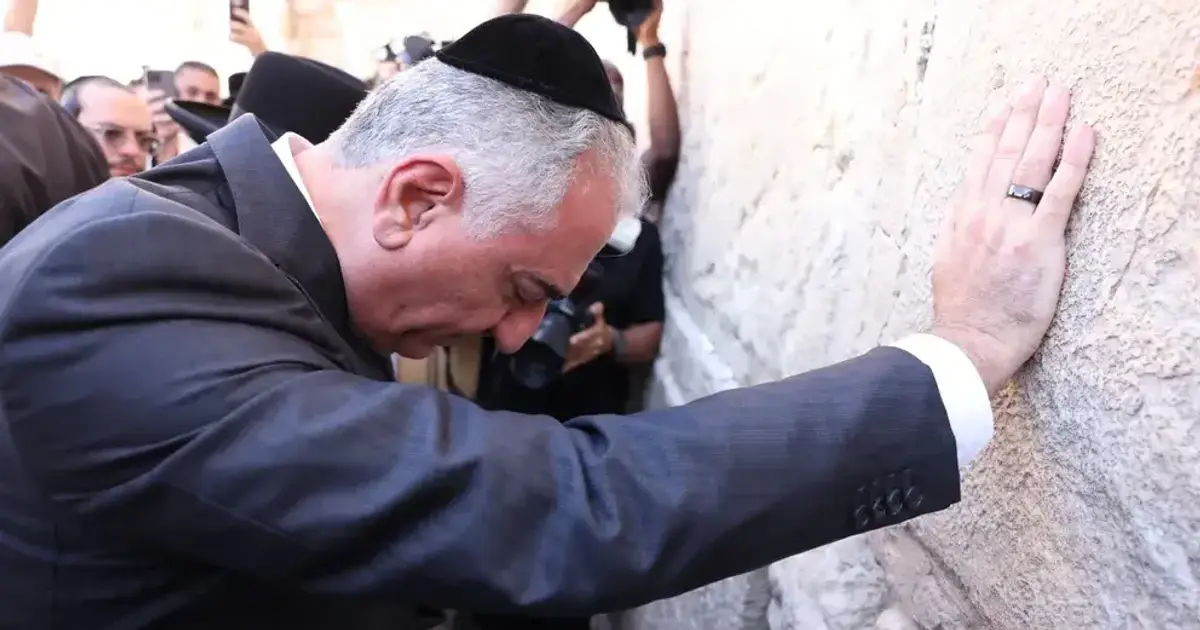Iranian dailies depict late Shah as anti-Israel, as son urges ties

Posted 3 hours ago, with the latest update at 8:14 AM.
Media channels in Tehran have eagerly seized on a new initiative by Iran's exiled prince to strengthen relations with Israel and promote the idea of overthrowing the Islamic Republic. He is drawing attention to the contrasts between his father and the Jewish nation.
The previously neglected historical period gained attention again when former Israeli Prime Minister Naftali Bennett called on Israel last week to take strong action against Iran. He claimed that the Islamic Republic's allies, Hamas and Hezbollah, have become less powerful.
"On October 2, Bennett shared on X that Israel is presented with its best chance in five decades to transform the situation in the Middle East, highlighting the urgency for action after Iran's missile strike on Israel the day before."
Bennett's remarks seem to allude to events from the Pahlavi period, aligning with the 50th anniversary of the 1973 Yom Kippur War.
Iranian newspapers Entekhab and Shahr-e Khabar reported that Bennett has pointed out tensions between the leadership of Israel and Iran even before the 1979 revolution took place.
The historical ties between Iran and Israel have undergone significant changes over the years. Once, the two countries enjoyed a relatively friendly relationship, especially during the reign of the Shah in Iran, when they engaged in various diplomatic and economic partnerships. However, this bond deteriorated drastically after the 1979 Iranian Revolution, which led to the establishment of an Islamic Republic that viewed Israel as a primary adversary. Since then, the relationship has been marked by hostility, with Iran supporting various groups that oppose Israel and consistently criticizing its policies. Today, the historical relationship between the two nations remains complex, defined by deep-seated tensions and differing political ideologies.
During the reign of Shah Mohammad Reza Pahlavi, Iran developed strong relations with Israel, making it the second Muslim-majority country to officially acknowledge the Jewish state.
Despite pushback from certain politicians, the ties between Iran and Israel grew closer through military agreements and collaboration on security matters. In this arrangement, Israel supplied military support in return for Iranian oil.
The Islamic Republic significantly altered that relationship, emerging as one of Israel's most outspoken opponents.
Iran's rulers, especially Supreme Leader Ali Khamenei, have consistently promised to eliminate Israel. Additionally, government-supported activities that deny the Holocaust have intensified these tensions.
The piece on Entekhab's website published on Monday pointed out that the relationship between Iran and Israel started to decline following the Yom Kippur War in October 1973.
On Monday, Entekhab reported that the Shah aimed to gain greater autonomy in his foreign relations by broadening the sources for military equipment and fostering closer relationships with various international powers, such as the Soviet Union.
"Throughout the war, the Shah permitted Soviet aircraft to fly through Iranian airspace to transport military supplies to Egypt, while Iran also offered financial assistance and oil support to the country. This action intensified tensions with Israel, resulting in a gradual separation between the two nations, ultimately leading to a total break in relations following the Iranian Revolution in 1979."
The Shah had a positive rapport with Anwar Sadat, who was the President of Egypt at the time. While he occasionally voiced criticism towards Israel, he was even more critical of the Palestinians. Nevertheless, he remained an ally of the West and continued to collaborate closely with Israel.
Reza Pahlavi, the former Shah's son living in exile, offers a perspective that is vastly different from the story told by Entekhab and similar sources.
He has been vocal about wanting to replace the current government in Iran and has also pushed for stronger relations with Israel. In April 2023, Pahlavi visited Israel to convey a message of solidarity from the people of Iran. During his visit to the Western Wall in Jerusalem, he openly expressed his hopes for peace between Israel and Iran.
Pahlavi shared his wish that the two countries might eventually rekindle their long-standing friendship.
He posted on Twitter while at the Western Wall, mentioning Cyrus the Great's freedom of the Jewish people: “I feel a deep sense of reverence as I stand at the Western Wall of that Temple and pray for the moment when the kind-hearted people of Iran and Israel can restore our longstanding friendship.”
During a Sunday interview with Fox News, Pahlavi stated that changing the Iranian regime could resolve numerous global issues. He pointed out that a shift in leadership would help address many problems worldwide, stressing how the current government's actions have negatively affected Iran's economic situation and overall stability.
He said that the danger of nuclear weapons and the spread of this ideology, along with the fall of this regime, would resolve all these issues.





















































